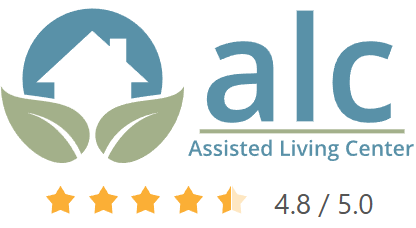
Your mother has always been fiercely independent. She raised a family, ran a household, had a career and prided herself on doing things herself. But lately, you’ve noticed changes—laundry piling up, skipped medications, or signs of forgotten meals. Or maybe your father, who used to enjoy his daily walks, now struggles to get out of the chair without wincing. You see the signs, but the thought of bringing up in-home care feels daunting. You worry it might hurt their feelings or make them feel like they’re losing control.
The good news is you’re not alone. Sure, it’s only natural to want to handle everything yourself, and maybe even feel a little guilty thinking about outside help. But that’s exactly what professional elderly care is for. If you’re in Northridge or nearby, don’t hesitate to look into expert support, it can make life easier for both you and your loved one.
How to talk to elderly parents about in-home care?
Talking to elderly parents about in-home care is an act of deep love. It requires listening more than lecturing, supporting rather than persuading. Here’s how you can discuss this sensible matter with them.
 1. Start with love, not logistics
1. Start with love, not logistics
Start simple. Tell them you’ve been thinking about them a lot. Let them know you’re worried, not because you doubt them, but because you love them. When you lead with emotion instead of logic, the conversation softens. You’re not “telling them what to do” – you’re showing up for them, as someone who cares deeply and wants what’s best.
2. Acknowledge their feelings
If they seem defensive or uncomfortable, that’s okay. This is a big shift. They might be afraid of losing their independence or feel embarrassed that they need help. Try not to correct or rush past those feelings. Just listen. Tell them you understand how hard this might be. Let them talk without jumping in to fix it. Sometimes the best thing you can do is simply say, “I get it—and I’m here for you.”
3. Use real-life examples and gentle observations
Instead of making sweeping statements, keep things grounded. Mention something small you’ve noticed, for instance, a missed appointment, an empty fridge, a bruise on their arm—and gently ask how they’re feeling. You’re not accusing them of anything; you’re noticing, and you’re asking. That difference matters.
4. Present in-home care as an empowering choice
This part is key: a lot of people see in-home care as the beginning of the end. But in reality, it can be the opposite—it can actually help them keep living the life they want, on their own terms. Help them see that. A little extra support might mean fewer worries, more energy, and more time doing what they love. Care isn’t about taking control away. It’s about giving it back.
5. Make it a joint decision
Nobody wants to feel backed into a corner. So make it clear that this isn’t a decision you’re making for them. Talk through it side by side. What would help? What wouldn’t? Would they feel better starting with just a couple hours a week? When they feel like their voice matters, it’s easier for them to feel comfortable with the idea.
6. Focus on trust and comfort
It’s not just about what a caregiver does—it’s about who they are. Your loved one might imagine a stranger coming in and disrupting their life, or have other misconceptions about in-home caregiver services. But many caregivers become trusted companions—people who bring warmth, respect, and even joy. Talk about finding someone they connect with, someone who’ll take time to understand their routine and make things easier.
7. Be patient and willing to revisit the conversation
If they’re not ready to say yes today, that’s okay. Sometimes, it takes more than one conversation. Be patient. Keep checking in and remind them that you’re in this together.
Who offers comprehensive elderly care in Northridge?
Supporting an aging loved one comes with a lot of emotions and questions, and you don’t have to figure it all out alone. At A Better Way in Home Care, we’re here to make things a little easier. Whether you’re not sure how to talk to your senior family members about in-home care, how to make your loved one’s home safer, or why companionship matters so much as they age, we’re here to help and answer all your questions. If you’re in Northridge or nearby, let us help you find compassionate, reliable care your loved one truly deserves.

 1. Start with love, not logistics
1. Start with love, not logistics







